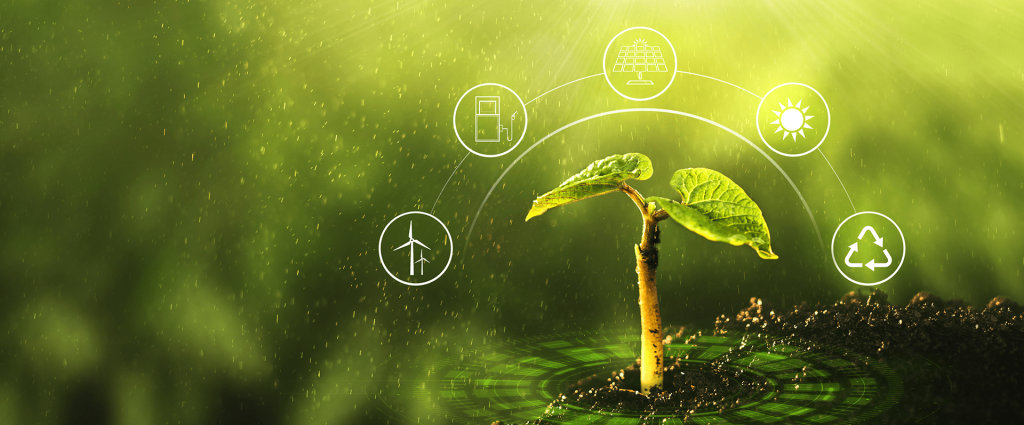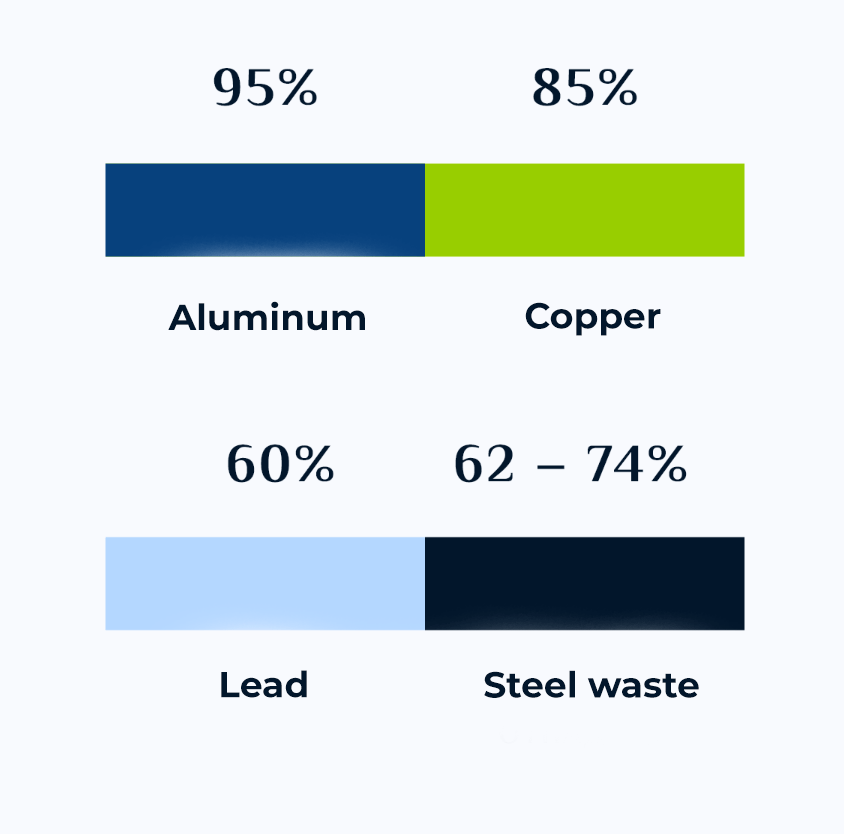Environmental policy of Nord holding
Environmental impact of raw
material recycling
The basic principles followed by Nord Holding when dealing with environmental
protection issues are:
Prevention, reduction and restriction of the harmful effects
of waste on the environment
Nord Holding applies a systematic approach
toward environmental protection.
It aims at a countrywide reduction of the quantities of household and production
metal waste not covered by recycling systems.
The even accumulation of waste and its regular transfer to the steel industry for
subsequent treatment prevents environmental pollution due to prolonged storing.
Waste recycling and reuse
Waste recycling as an activity to recover and renew the waste raw material characteristics
is at the core of what Nord Holding does.
Achieving an optimal amount of stored materials through purposeful acceptance
is based on approved schemes that ultimately aim at recycling.
Nord Holding strives to implement the best possible European practices for waste recycling preparation
by optimizing the entire chain of processes from the input to the output of raw materials ready to be used in manufacturing. Shortening waste preparation and recycling times reduces the risk of adverse effects on human health and the environment.
Environmentally friendly waste deposition and recycling
So as to ensure environmentally friendly waste recycling and recovery activities
whereby any risk of environmental pollution or threat to human health is within
permissible limits, measures to store waste in special separate storage containers or closed
warehouses have been implemented, and modern equipment has been purchased to aid waste processing, loading-unloading, and transportation.
Benefits of waste recycling

A noteworthy positive effect of recycling secondary metals and other materials, which
is at the root of Nord holding’s activity, is protecting the environment and reducing the amount of energy needed to produce one tonne of material.
Reuse of secondary raw materials means that lower amounts of natural resources are used
than would otherwise be needed to produce new metal compounds (i.e. less iron ore for the production of steel, nickel – for stainless
steel, or bauxite in the extraction of aluminum).
Last but not least, waste recycling contributes to the reduction of harmful CO2 emissions by
decreasing the amount of energy used in production processes.
Recycling waste metals, which are subsequently used to make new metal products, saves the following amounts of energy:


Recycling 1 tonne of waste paper saves:
Recycling 1 tonne of plastic waste contributes to saving:
Recycling 1 tonne of waste glass saves:
According to data by the European Community, the use of recycled
waste reduces CO2 emissions by about 200 millions of tonnes per year.
In addition to conserving energy sources and natural resources, recycling materials reduces the need to extract new raw materials, thus protecting the ecosystem.
